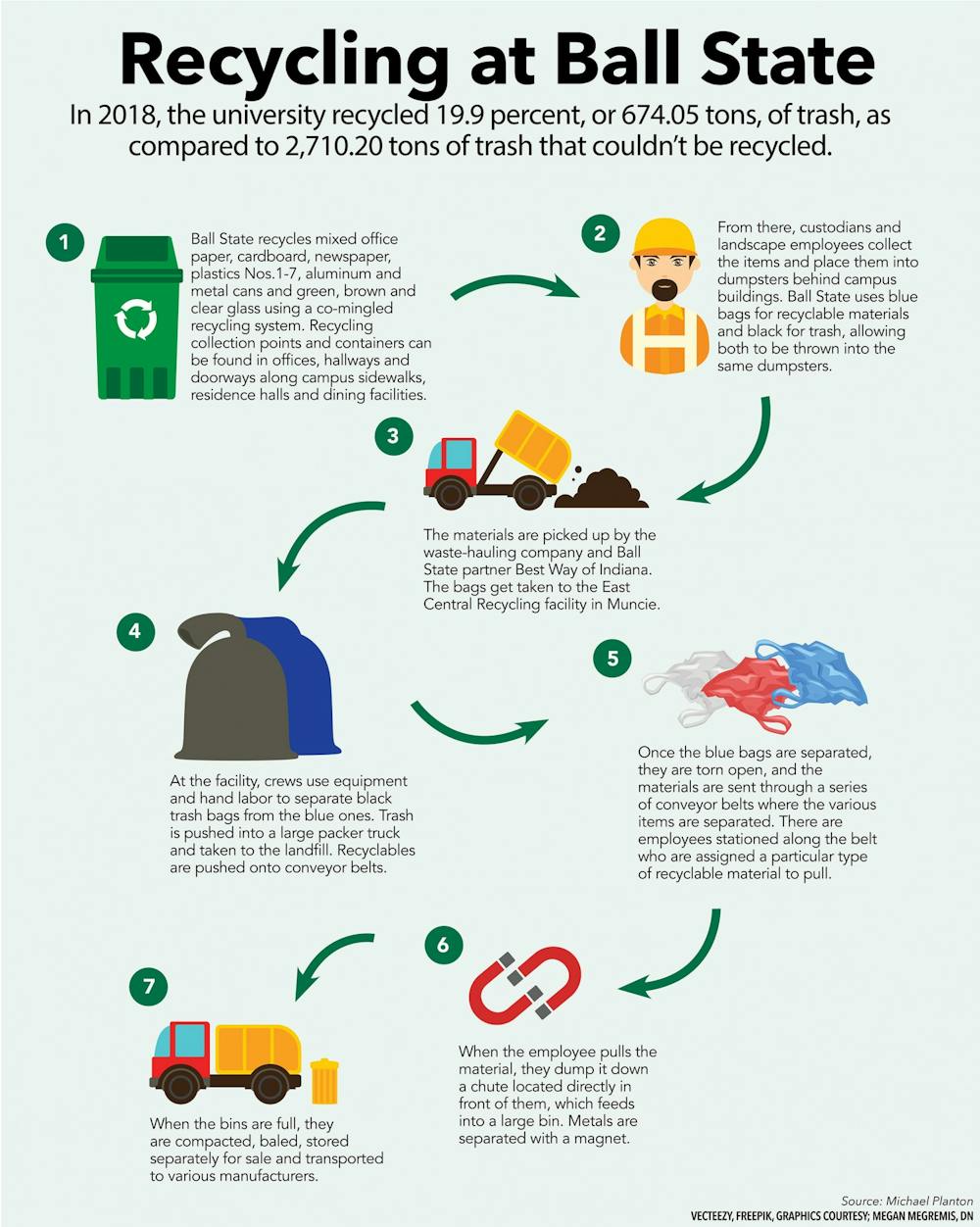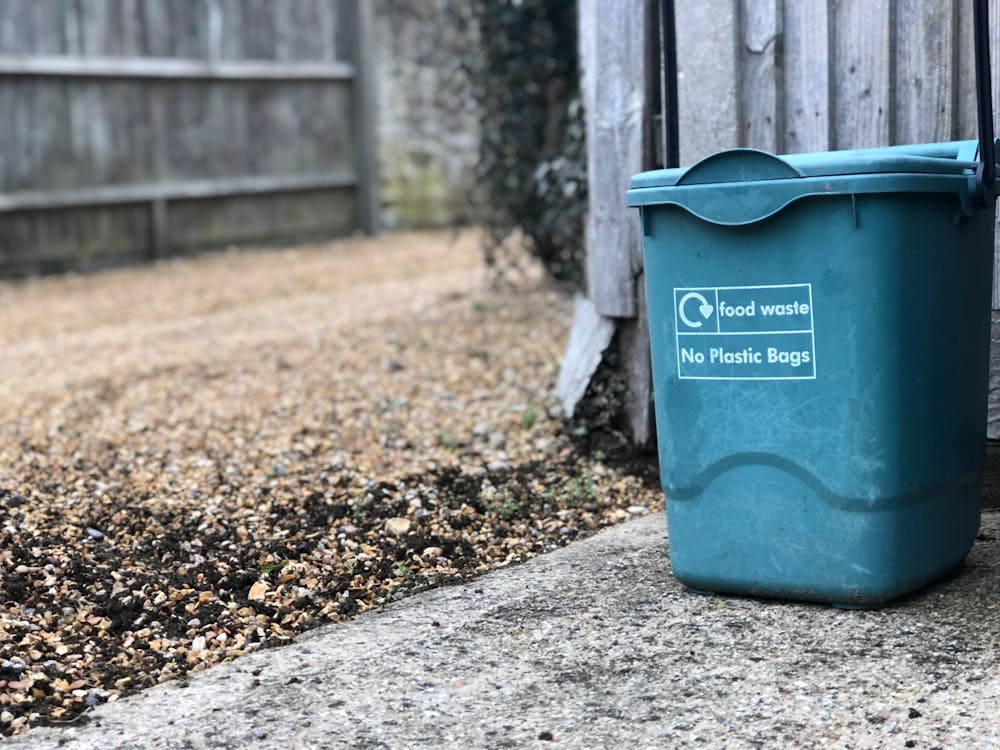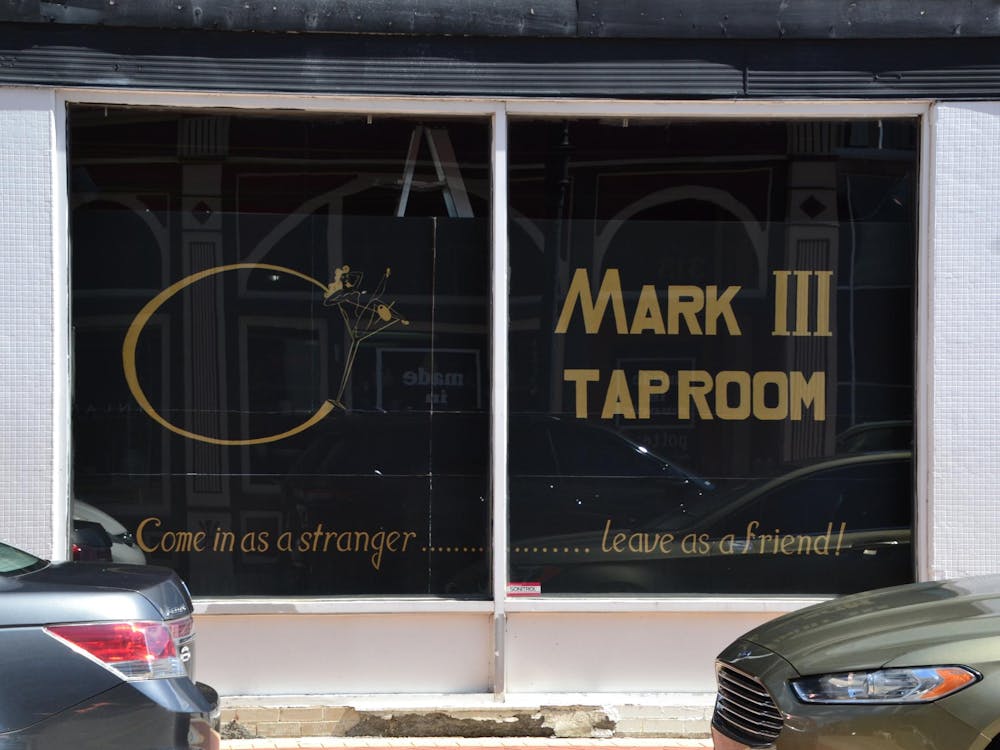
Megan Megremis, DN
During the 2018-19 academic year, a member of Ball State’s Green Action Team (GAT) admitted to having little understanding of what items are recyclable at the university, said Hannah Jones, treasurer of the organization.
Since then, Jones, along with other members of the club who work to promote sustainability on campus, began working on a campus-wide project to design a universal label that specifies what can and cannot be recycled.
While Ball State teaches students about sustainability by hanging posters near trash and recycling bins, Jones said much of the information is outdated and difficult to understand. GAT’s goal is to make recycling signs that are easier to understand and can be read quickly.
If successful, Jones said, GAT hopes to “create a more knowledgeable campus” where students will recycle more, do so more efficiently and pay attention to their daily consumption.
In the past few years, Ball State has recycled between 19 and 22 percent of all trash, said Michael Planton, associate director of environmental management.
Both Planton and Jones said one thing many students do not realize about recycling is that they should clean what they recycle before putting them in the bins. Oftentimes, Planton said, many bags of recycling are contaminated because students tend to recycle products that are not recyclable.
“We get contamination with people placing trash into recycling bins,” he said. “Most times, this means the entire bag must be landfilled instead of sorted and recycled … If a manufacturer has to add steps to clean up recycled materials, it cost them money. If the cost is greater than using virgin materials, they will use virgin materials first.”
Planton also said plastic water bottles and bags are often made of “plastics nearing the end of their useful life,” so even though these products can be recycled, they are often not reused.
To combat this issue, Planton recommended using reusable water bottles and tote bags, which are all products sold by Ball State Dining at various locations on campus.
“The biggest thing students need to understand is that recycling is not the best thing you can do for the environment,” Jones said. “Although it is better than throwing stuff in the trash, the best thing to do is to reuse your stuff.”
Although much of the recycling process occurs off Ball State’s campus, she said students are the ones who start the process.
“If you want to be better on campus, I would say increase your understanding of sustainability,” Jones said.” If you start doing it repeatedly, it will become a habit.”
Contact Taylor Smith with comments at tnsmith6@bsu.edu or on Twitter @taynsmithh.





